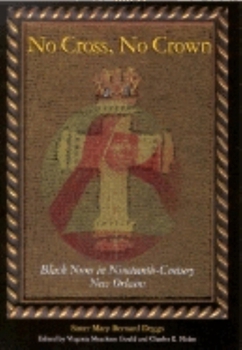No Cross, No Crown: Black Nuns in Nineteenth-Century New Orleans
Select Format
Select Condition 
Book Overview
Nineteenth-century New Orleans was a diverse city. The French-speaking Catholic Creoles, whether black, white, or racially mixed-so different from the city's English-speaking residents-inspired intense curiosity and speculation. But none of the city's inhabitants evoked as much wonder as did the Sisters of the Holy Family, whose mission was to evangelize slaves and free people of color and to care for the poor, sick, and elderly.
These women, whose community still thrives, are portrayed in an account written between 1896 and 1898 by one of their sisters, Mary Bernard Deggs, who shortly before her death made it her mission to record the remarkable historical journey the women had taken to serve those of their race. Although Deggs did not officially join the Sisters of the Holy Family until 1873, she was a student at the sisters' early school on Bayou Road and thus would have known, as a child, Henriette Delille, the founder and first mother superior of the Sisters of the Holy Family, and the other
women who joined her.
This account captures, in a most graphic way, the founding of the
Sisters of the Holy Family in New Orleans in 1842 and the difficult years that followed. It was not until 1852 that the foundresses were able to
take their first official vows and exchange their blue percale gowns for
black ones (and it was 1873 before they were permitted to wear a formal
religious habit). Shortly before Delille's death in 1862, Union forces
seized the city, and Delille's successor, Juliette Gaudin, faced dire
economic circumstances. The war and postwar years economically devastated
New Orleans and its population. Freed slaves poured into the city,
unintentionally adding themselves to the already overwhelming mission of
the sisters. Those were the poorest and most uncertain years the sisters
were to face.
We know very little about Sister Mary Bernard Deggs herself, but her history of the early years of the Sisters of






